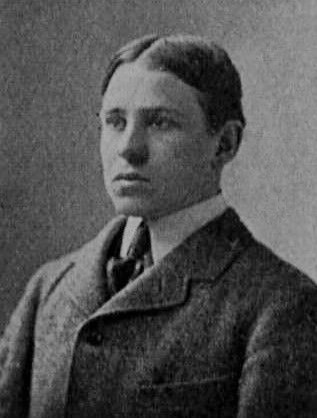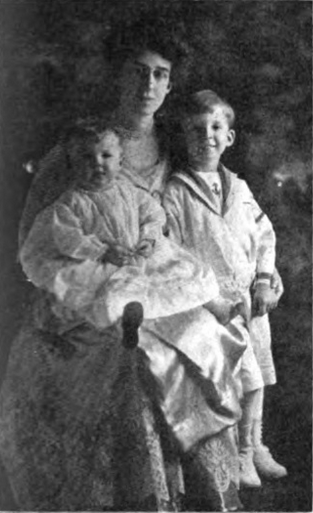Related Research Articles

Allegheny Cemetery is one of the largest and oldest burial grounds in Pittsburgh, Pennsylvania. It is a historic rural cemetery.

The following is an alphabetical list of articles on people, places, and things related to Pennsylvania in the United States.

William Warren Scranton was an American Republican Party politician and diplomat. Scranton served as the 38th governor of Pennsylvania from 1963 to 1967, and as United States Ambassador to the United Nations from 1976 to 1977.
The Interstate League was the name of five different American minor baseball leagues that played intermittently from 1896 through 1952.
Notable American Women, 1607–1950: A Biographical Dictionary is a three-volume biographical dictionary published in 1971. Its origins lay in 1957 when Radcliffe College librarians, archivists, and professors began researching the need for a version of the Dictionary of American Biography dedicated solely to women.

Julian Kennedy was an American engineer and inventor, known for his national and international contributions to the steel industry. He was awarded the ASME Medal in 1928.
The First Woman's National Temperance Convention was a founding event in the establishment of the American Woman's Christian Temperance Union (WCTU).

The women's suffrage movement in Pennsylvania was an outgrowth of the abolitionist movement in the state. Early women's suffrage advocates in Pennsylvania wanted equal suffrage not only for white women but for all African Americans. The first women's rights convention in the state was organized by Quakers and held in Chester County in 1852. Philadelphia would host the fifth National Women's Rights Convention in 1854. Later years saw suffragists forming a statewide group, the Pennsylvania Woman Suffrage Association (PWSA), and other smaller groups throughout the state. Early efforts moved slowly, but steadily, with suffragists raising awareness and winning endorsements from labor unions.
Anna Bustill Smith was a cousin of Paul Robeson and member of Philadelphia's prominent Bustill family. A suffragist, who was the first known African-American genealogist in the United States, she also achieved recognition as an African-American author during the 20th century. Among her most important works are biographical sketches about members of the Bustill family, as well as her Reminiscences of Colored People of Princeton, N.J., 1800–1900, which was a study of Princeton's Black community that was published in 1913.

Jennie Eliza Kennedy was an American clubwoman and suffragist. Kennedy was one of the activists that helped create the "Pittsburgh Plan" as a women's suffrage strategy.

Marion Margery Warren Scranton was a 20th-century women’s suffrage activist and leading member of the Republican Party in the United States. Known as “the Duchess and the Grand Old Dame of the Grand Old Party,” she was described in Life magazine as “the woman Pennsylvania politicians still remember as ‘Margery,’ and ... the only woman who could wear two orchids through a coal mine and get away with it.”

Worthington Scranton was a 20th-century American lawyer, businessman, and philanthropist who became president of the Scranton Gas and Water Company in Scranton, Pennsylvania, a city which was named after his grandfather, Joseph Hand Scranton (1813–1872).

Lucy Kennedy Miller (1880–1962), also known as Mrs. John O. Miller, was a prominent 20th-century American suffragist who became the president of the Equal Franchise Federation of Pittsburgh, Pennsylvania and the first president of the Pennsylvania League of Women Voters (PLWV). In 1919, the League of Women Citizens of Pennsylvania called her "the woman to whom, more than to any other" was "owe[d] the triumph of" women's suffrage in the Commonwealth of Pennsylvania.

Eliza Kennedy Smith, also known as Mrs. R. Templeton Smith, was a 20th-century American suffragist, civic activist, and government reformer in Pittsburgh, Pennsylvania. Upon her death in 1964, The Pittsburgh Press described her as "a relentless, tenacious watchdog of the City's purse strings" who "probably attended more budget sessions over the years than anyone else in Pittsburgh either in or out of government".
Mary "Molly" Ella Bakewell was an American suffragist, author and social activist from Pittsburgh, Pennsylvania. The eldest of three daughters in the prominent Bakewell glassmaking family, she devoted her life to advocacy and reform. Originally she was an advocate for kindergartens, as a member of the International Kindergarten Union. In the early 20th century she devoted herself to women's suffrage working with Eliza Kennedy Smith, Lucy Kennedy Miller, Jennie Bradley Roessing, Mary Flinn Lawrence and Hannah Patterson. Later in life she attended Hartford Theological Seminary and took up the cause of female clergy. She also authored three books and an unpublished manuscript.
References
- 1 2 3 4 5 6 7 8 9 10 11 12 13 14 Hertzog, Kate (2007). More than petticoats. Guilford, Conn: TwoDot. ISBN 9780762736379.
- 1 2 3 4 5 Miller, Arthur (2003). Guide to the homes of famous Pennsylvanians : houses, museums, and landmarks. Mechanicsburg, PA: Stackpole Books. ISBN 9780811726283.
- ↑ “Frankford Chronicles Agent Lydia Darragh - Intelligence Operative”.
- ↑ "Valiant Women of the Vote: Refusing to be Silenced," in "Women's History Month." Harrisburg, Pennsylvania: Pennsylvania Senate, retrieved online August 2, 2022.
- ↑ Carocci, Vincent P. Capitol Journey: Reflections on the Press, Politics, and the Making of Public Policy in Pennsylvania, Chapter 13: “William Warren Scranton II (1963-1967).” University Park, Pennsylvania: The Pennsylvania State University Press, 2005.
- ↑ Perlstein, Rick. Before the Storm: Barry Goldwater and the Unmaking of the American Consensus , p. 275. New York, New York: Hill and Wang, A Division of Farrar, Straus and Giroux, 2001.
- ↑ "Paul Robeson's Cousin Dies in Philadelphia." Detroit, Michigan: The Michigan Chronicle, August 25, 1945.
- ↑ Woodson, C. G. "The Bustill Family", in Negro History Bulletin, Vol. 11, No. 7, pp. 147–148, p. 167. Washington, D.C.: The Association for the Study of African American Life and History (ASALH).
- ↑ Pitz, Marylynne. "A roll call of Western Pa. suffrage trailblazers." Pittsburgh, Pennsylvania: Pittsburgh Post-Gazette, September 13, 2020.